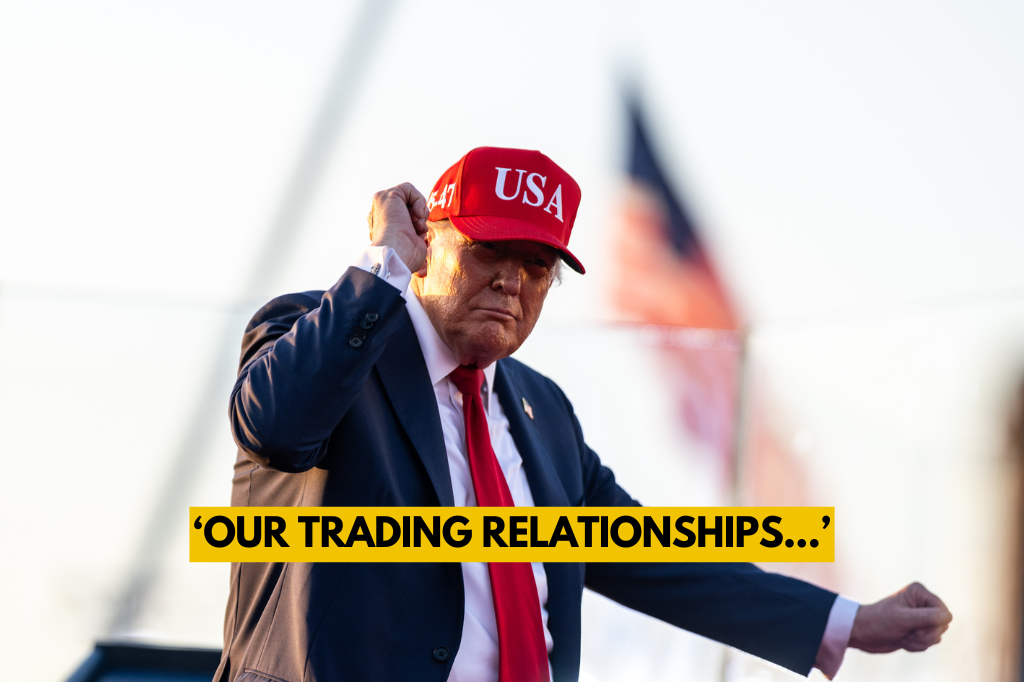US President Donald Trump announced a new round of tariffs, imposing a 25 per cent duty on imports from Japan and South Korea. The announcement came as Trump released the first two in a planned series of up to 15 letters to various countries, warning them of impending trade penalties unless more favourable terms are negotiated.
The identical letters, addressed to Japanese PM Shigeru Ishiba and South Korean President Lee Jae-myung, were shared on Trump’s Truth Social platform. He said the new tariffs would take effect on August 1, citing imbalanced trade relations. “Unfortunately, our trading relationships with your country are far from reciprocal,” Trump wrote.
He warned both nations against retaliatory tariffs, stating that any increase in import duties on US goods would trigger a matching hike beyond the newly announced 25 per cent rate. “If for any reason you decide to raise your tariffs, then, whatever the number you choose to raise them by, will be added onto the 25 per cent that we charge,” Trump wrote.
However, he also left room for negotiation, suggesting that the tariffs could be lowered if Japan and South Korea revise their trade practices. Trump also emphasized that the tariffs would not apply to companies that manufacture within the United States. “There will be no tariff if your companies decide to build or manufacture products in the US,” he added, promising fast-tracked regulatory approvals for such investments.
The letter also warned against tariff evasion through third-country transshipment, stating that such goods would still be subject to the full 25 per cent tariff. “Please understand that the 25 per cent number is far less than what is needed to eliminate the trade deficit disparity we have with your country,” Trump wrote.
While the tariff rate for South Korea remains unchanged from Trump’s April 2 announcement, the rate for Japan is one percentage point higher than previously indicated.
In a related move, the White House confirmed that Trump will sign an executive order delaying the deadline to finalize trade agreements to August 1, pushing it back from the original July 9 deadline.







